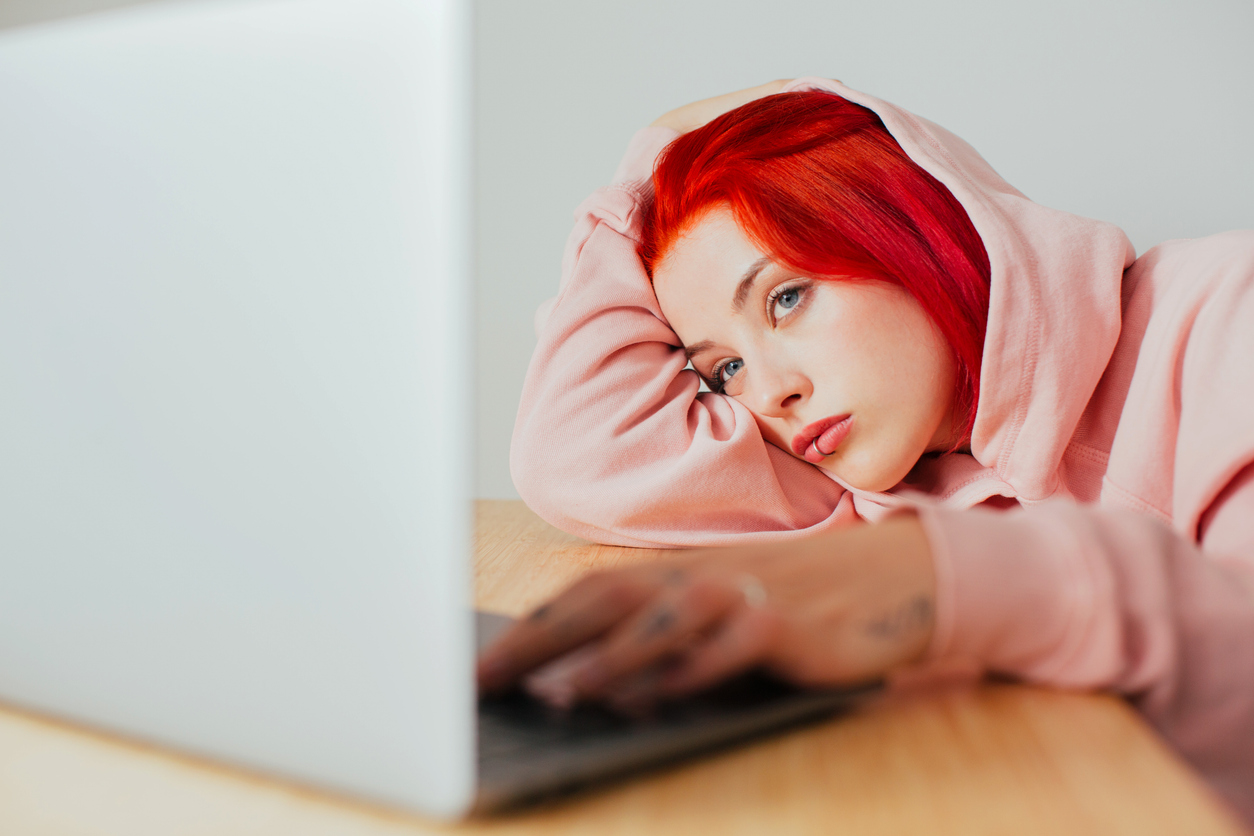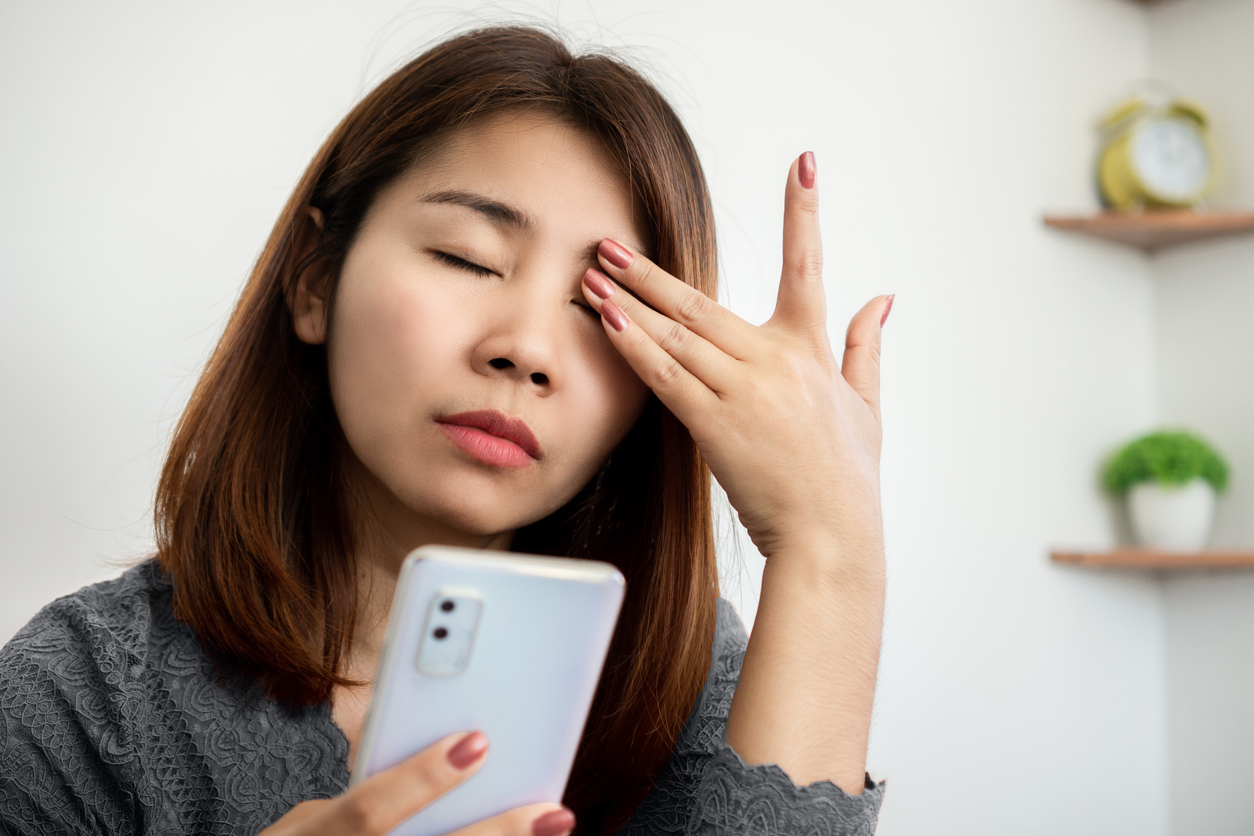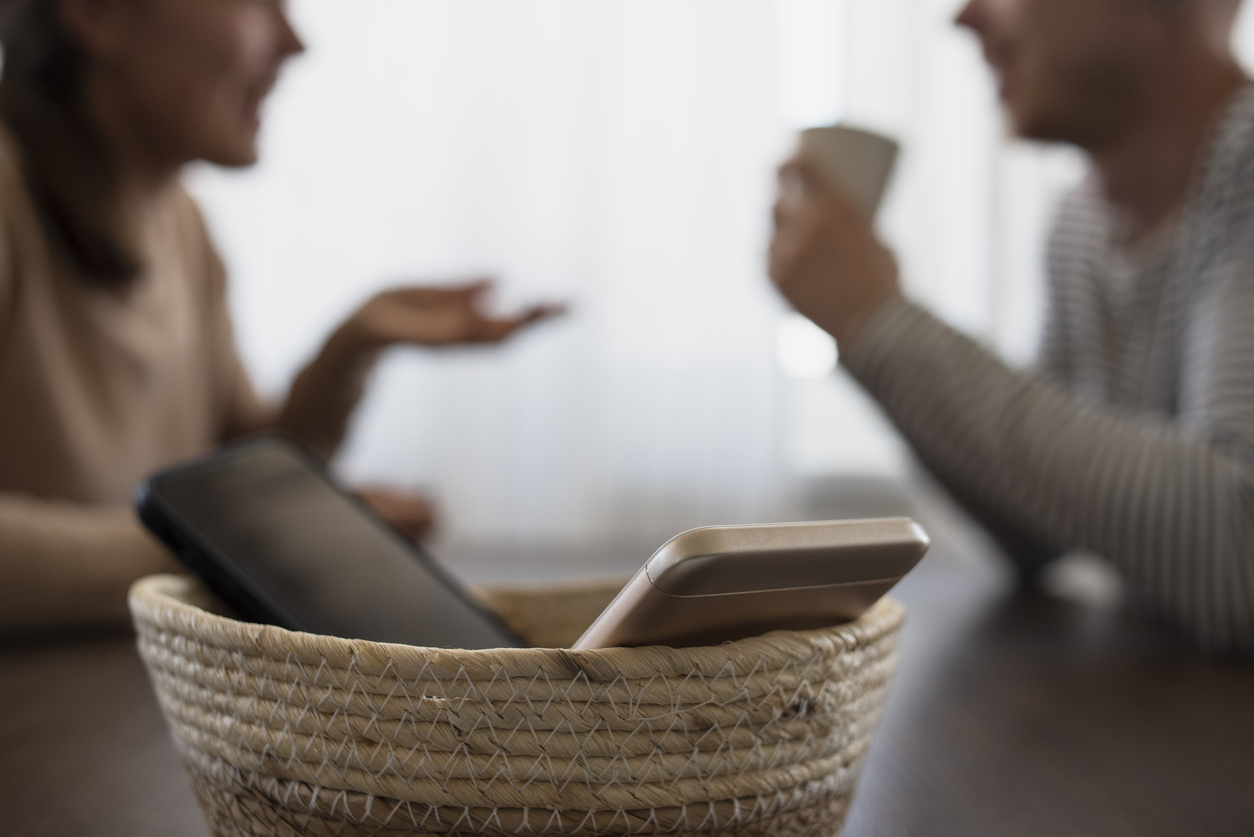Whether we like it or not, we live in a world where screens increasingly dominate our daily lives. However, incessant notifications, social networks and remote working can reinforce our feeling of dependence on digital technology, often to the detriment of our well-being. Do you feel like you’re spending too much time in front of your screens? If this is the case, there are several strategies to find a better balance, reduce your screen time without completely disconnecting, improve your quality of life and preserve your mental health. Here’s how to do it in a few effective tips.
Why do we spend so much time with our eyes glued to our screens?

First of all, we must not ignore the fact that new generations have grown up with the internet, smartphones and new technologies, hence a particular relationship with the mobile phone which can register as an important part of their social life and even their identity. For many, le syndrome FOMO (fear of missing out or fear of missing something in French) is also an important component that pushes you to want to stay connected and overconsume screens so as not to miss publications from loved ones and current events, all with an endless stream of posts which increasingly reinforces the impression of having to remain present and informed in addition to having to be reactive in online interactions with loved ones who are often themselves fond of these technological tools.
According to an ExpressVPN study on the subject, these problems encountered by screen users are also simply added the need to use technology in their work for more than a quarter of people. Furthermore, despite the fact that many realize the need for less digital exposure, it can be difficult to find motivation or even know where to start. Our advice at the bottom of the article will help you if you are looking for how to find the right balance on a daily basis.
Why is it important to pay attention to our screen time for our mental health?

Screen abuse can firstly harm sleep, especially from blue light emitted by devices that disrupt the circadian rhythm. However, insufficient sleep affects mood, concentration and the ability to manage stress. Furthermore, excessive use of screens promotes social isolation, because it reduces face-to-face interactions, which are essential for emotional well-being. Furthermore, the constant comparison with idealized lives on social media can lead to lowered self-esteem and chronic dissatisfaction, thus worsening symptoms of anxiety or depression.
Hyperconnection, characterized by incessant notifications and constant access to information, can also lead to stress, anxiety and sensation de surcharge cognitive. This continued exposure to the digital world, combined with the consumption of content potentially harmful to mental well-being, can erode our ability to relax and concentrate. It is therefore not uncommon for the time spent in front of screens to sometimes give the impression of experience a drop in productivitywhich generates frustration linked to no longer having enough time for quality moments with loved ones or for activities that bring real fulfillment, which impacts our overall well-being.
How can we gently reduce our screen time? Advice to follow

Establish strictly screen-free time slots and practice “batch checking”
Establishing screen-free time slots allows you to demarcate times of the day dedicated to non-digital activities like in the morning or before bed. This reduces constant exposure to online notifications and distractions while promoting better concentration and quality of sleep. Coupling this practice with “batch checking”, which consists of grouping email or social network checks into a few specific times of the day, helps to reduce overconnection and avoid mental exhaustion linked to incessant viewing of screens.
Use apps to track or limit screen time
Some applications help us become aware of our screen consumption by indicating the time spent on each application and identifying major sources of distraction. Some tools even offer to set objectives to limit non-essential uses, by blocking certain applications after a certain duration. Using these applications helps to restore digital balance by becoming aware of your habits and correcting them. This is a very useful progressive aid towards reducing screen time and associated abuses.
Have screen-free spaces at home
Define screen-free zones at home, such as the bedroom or dining room, encourages interactions and promotes relaxation. These spaces allow you to mentally disconnect and refocus on activities with family or friends. Without the distraction of screens, these moments become conducive to deeper conversations, reading or meditation. It also encourages more calming environment where digital stress does not penetrate.
Opt for offline leisure
Activities such as cooking or creative hobbies (drawing, sewing, etc.) are great alternatives to digital distractions. These occupations promote concentration, patience and creativity while offering beautiful, tangible moments, far from the virtual world. Furthermore, by choosing to spend time in offline hobbies, you not only improve your mental well-being, but you also strengthen your self-esteem through concrete accomplishments. Above all, it is simply a welcome break from your digital routine to reconnect with yourself.
A digital detox cure or challenge with total disconnection
Participating in a digital detox cure or challenge consists of completely disconnect from screens for a specific period of timeoften a weekend or a week, or even longer if you deem it necessary. This break allows you to break away from hyperconnection and refocus on activities more anchored in the present moment. These challenges can thus allow us to take a step back, find balance andlearn to appreciate the freedom of time unstructured by screens.


